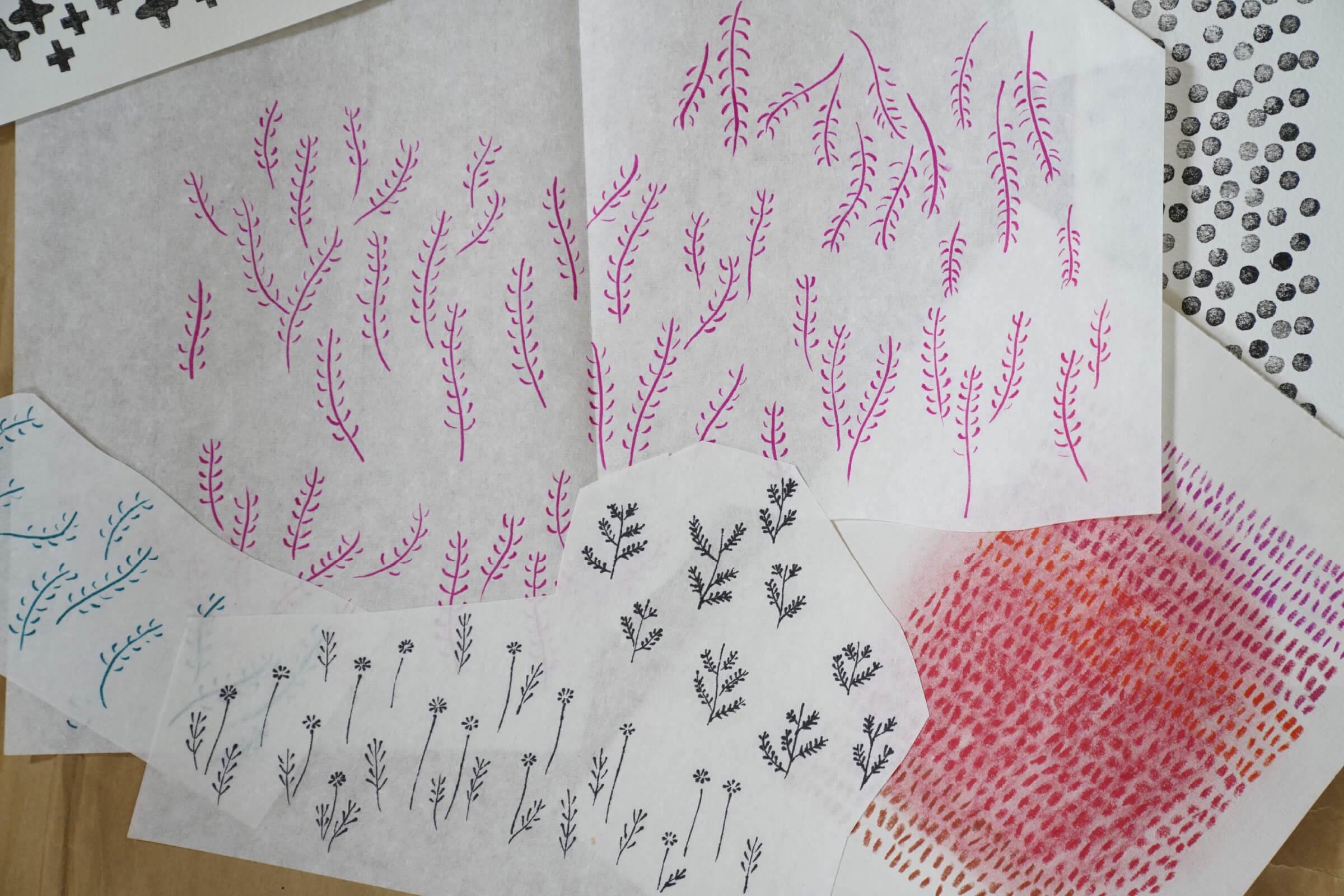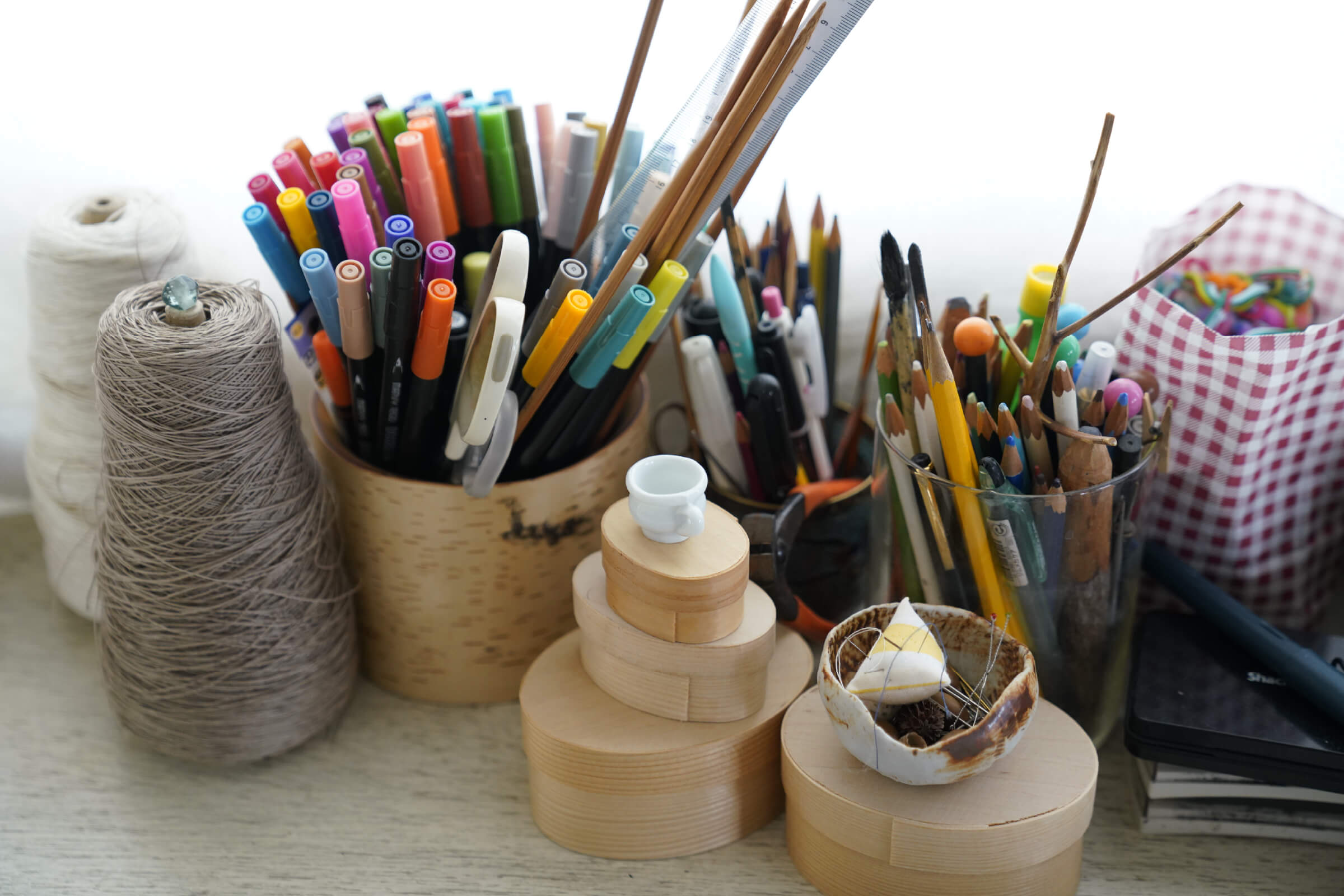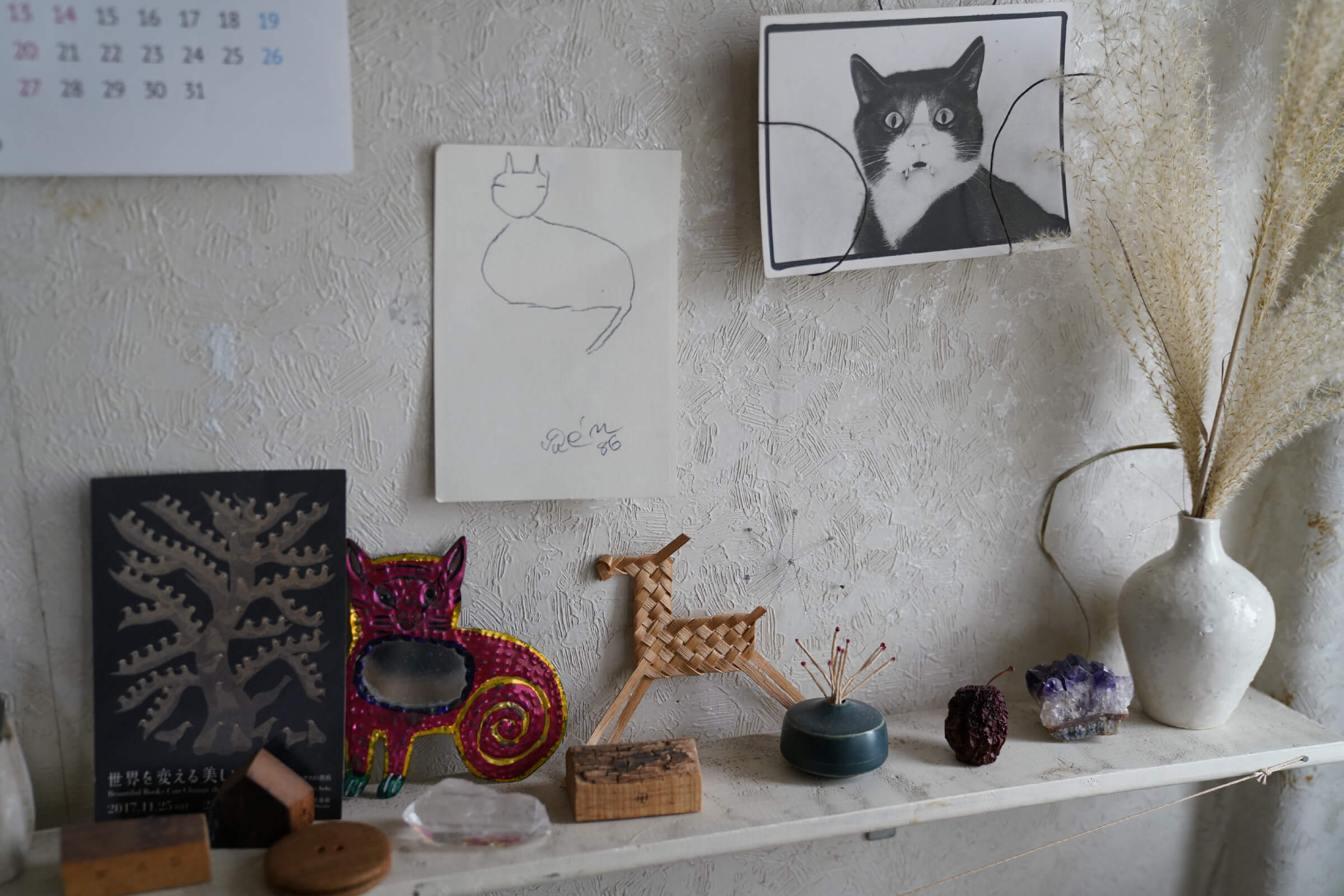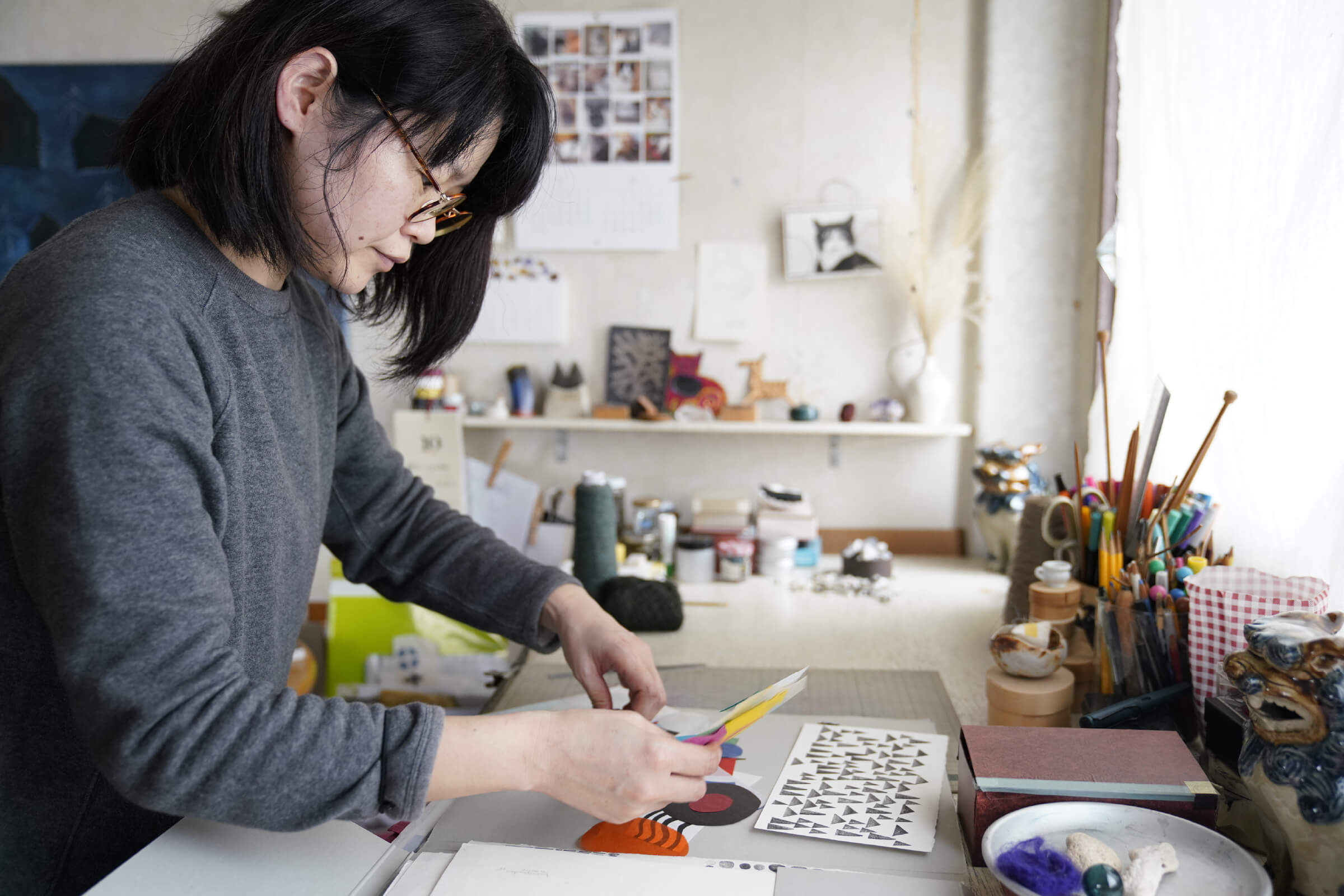What does it mean to write? Writing is a very simple task one can do with only a pen and paper. And yet, the possibilities are endless. This popular series from last year comes back with a new lineup of interviewees. To everyone who is involved in writing on a daily basis, what does it mean to write?
What does it mean to write?
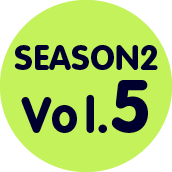
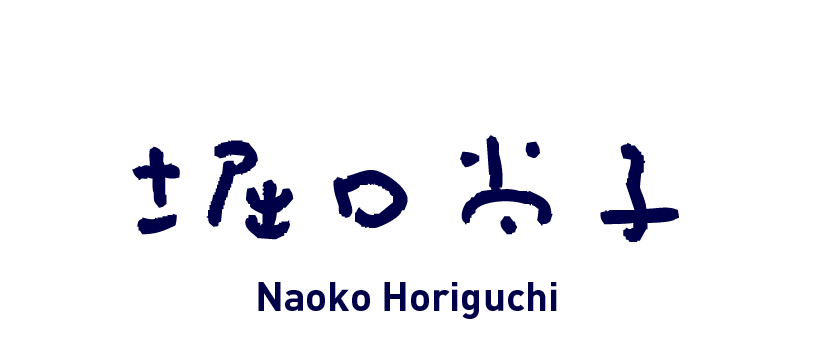
To write is to have a conversation
with yourself.
Artist and illustrator Naoko Horiguchi uses paper cutouts, stamps, paint, pens, and more to create beautiful illustrations that mix together various mediums. She designed accessories for the Hobonichi Techo 2020 lineup, such as a Cover on Cover and Folder Set. To Horiguchi, the action of drawing a line with a pen, cutting paper with scissors, and stamping images using a handmade eraser stamp are all acts of “writing.” We visited Horiguchi in her workplace to talk about what she thinks and feels when she “writes.”
ProfileNaoko Horiguchi
Artist and illustrator born in Saitama Prefecture in 1976. Graduated from Setsu Mode Seminar in 1998. Creates figurative and abstract works of art using ink, acrylic paint, rubber stamps, paper cutouts, and more. Works under the motto “try to make anything,” demonstrated through her handmade wrapping paper, calendars, postcards, textiles, and art pieces made of wool.
Designed the following products in the Hobonichi Techo 2020 lineup:
-Cover on Cover: nonohana
-Cover on Cover: iroiro
-Hobonichi Folder Set: tsuta
-Hobonichi Folder Set for A6 Size
-Hobonichi Folder Set for A5 Size
-Hobonichi Translucent Sticky Notes: cross
-Hobonichi Mini Letters Set: Apple and Flower
Homepage


